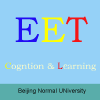-
Metacognition v2
普通类 -
- 支持
- 批判
- 提问
- 解释
- 补充
- 删除
-
-
Introduction
METACOGNITION IS A WORD THAT DOESN'T EXACTLY ROLL OFF THE TONGUE. In fact, the term may be unknown to most people. Metacognition is a learning concept first described by John Flavell in 1976. It can be defined in the simplest terms as thinking about thinking.
Some compare the metacognitive process to that of the chief executive officer (CEO) whose role is corporate manager and decision maker. Metacognitive thinking is the CEO of
learning. Just as the CEO manages the corporation, metacognitive strategies manage a learners thinking about and planning for learning.
Metacognitive thought is an essential skill for learning. It ensures that the learner will be able to construct meaning from information. To accomplish this, the learner must be able to think about their own thought process, identify the learning strategies that work best for them and consciously manage how they learn.-
Examples of metacognitive strategies include:
- Planning - looking ahead and preparing for written or verbal communication.
- Self-monitoring - checking your comprehension while listening or reading.
- Self-evaluation - checking your learning against a standard.

-
Metacognitives learners ask themselves and answer questions like:
- How much time do I need to set aside to learn this? (Planning)
- Do I understand what I am reading or hearing? (Self-monitoring)
- How can I measure my success? (Self-evaluation)
-
Metacognitive and Cognitive Learning Strategies
It is important to understand the relationship between metacognitive and cognitive strategies. The metacogntive activities like those listed above, usually occur before or after a cognitive activity.
An example of the relationship between the metacognitive and cognitive strategies is a learner who uses self-monitoring when reading. He/she knows that they are not comprehending what they have read (metacognitive). They also know that they will understand the text better if they create a concept map or outline (cognitive).
This concept map is an example of a congnitive learning strategy that a learner might use to better understand the relationships between metacognitive and cognitive strategies.
-
Relation
Jan Wahl
San Diego State University -
-
- 标签:
- planning
- cognitive
- strategies
- metacognition
- metacognitive
- learner
- understand
- learning
- v2
- ceo
- thinking
- self-monitoring
-
加入的知识群:



学习元评论 (0条)
聪明如你,不妨在这 发表你的看法与心得 ~